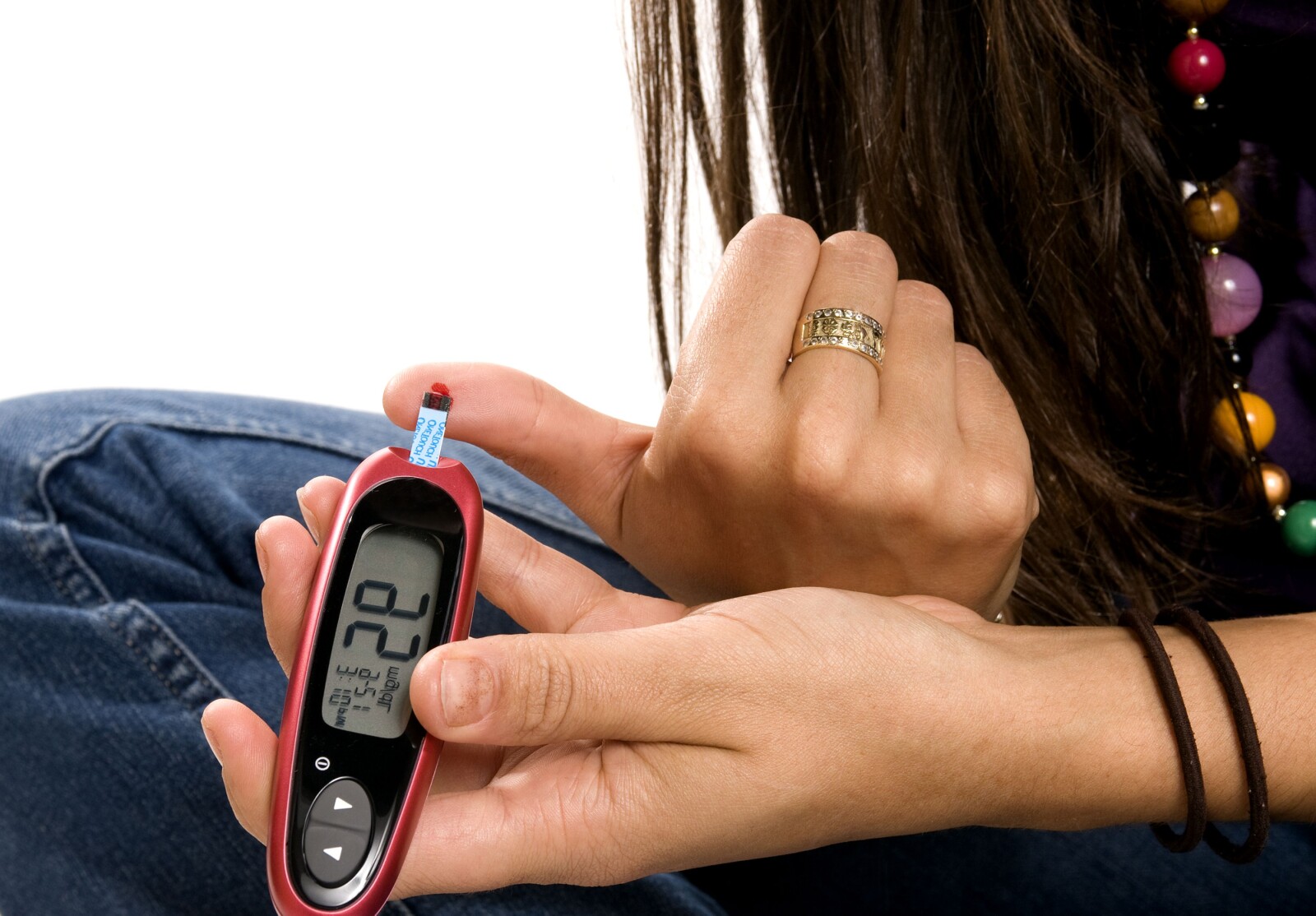Diabetes – Symptoms, Diagnosis, Treatments & Complications
Like an unwelcome guest, diabetes silently infiltrates millions of lives worldwide, disrupting their health equilibrium. This article illuminates this elusive intruder, shedding light on its symptoms, diagnosis, treatments, and potential complications. With a firm grasp on this knowledge, we can collectively work towards better management, prevention strategies, and ultimately, a healthier, diabetes-free life. Let's embark on this journey of understanding and combating one of the world's most prevalent health challenges – diabetes.

Key Takeaways
- Diabetes is a chronic disease that affects blood sugar control.
- There are two main types of diabetes: Type 1 and Type 2.
- Risk factors for diabetes include age, family history, obesity, sedentary lifestyle, and gestational history.
- Diagnosis of diabetes requires a combination of tests, including the A1C test, fasting plasma glucose test, glucose tolerance test, and ketone testing. Treatment options for diabetes include lifestyle changes, medications, insulin, and regular checkups.
Understanding the Basics of Diabetes
In the context of understanding the basics of diabetes, it is essential to start with the definition of this chronic disease, which is characterized by the body's inability to properly regulate blood sugar levels due to issues with insulin production or function. There are two main types of diabetes, Type 1 and Type 2, each presenting unique challenges in management and prevention. Diabetes prevention strategies primarily involve lifestyle modifications, such as maintaining a balanced diet and regular physical activity. Managing diabetes through exercise is particularly beneficial as it helps regulate blood sugar levels and improve insulin sensitivity. This, coupled with regular monitoring of blood glucose and adherence to prescribed medication, can significantly improve quality of life for individuals living with diabetes.
Recognizing Common Symptoms of Diabetes
A person's ability to recognize the common symptoms of diabetes is crucial for early detection and intervention. These symptoms often include frequent urination, excessive thirst, unexplained weight loss, constant hunger, and fatigue. The presence of such symptoms should prompt immediate medical consultation for proper diagnosis and symptoms management. New research indicates that early intervention can significantly slow the progression of the disease, thereby reducing the risk of serious complications. Other symptoms such as blurred vision, slow-healing sores, frequent infections, and areas of darkened skin can also signify diabetes. These signs may not always be obvious, hence the importance of regular health check-ups. It is essential to keep abreast of the latest research findings to understand the evolving nuances of diabetes symptoms.
The Role of Insulin in Diabetes
Understanding the role of insulin, a hormone produced by the pancreas, is essential for comprehending the physiological processes behind the onset and progression of diabetes. Insulin plays a crucial role in glucose regulation. It allows cells in the body to take in glucose from the bloodstream and use it as a source of energy. Dysfunction in this process leads to high blood sugar levels, a hallmark of diabetes. For individuals with diabetes, especially type 1, insulin therapy is often a necessary component of diabetes management. This treatment involves injecting insulin to ensure glucose can be adequately utilized by the body's cells. Thus, understanding the role of insulin in glucose regulation and its use in diabetes management helps illuminate the complexities of this chronic disease.
Distinguishing Between Type 1 and Type 2 Diabetes
Delineating the differences between Type 1 and Type 2 diabetes involves examining the underlying causes, symptoms, and treatment strategies for each type. In Type 1 diabetes, the body's immune system destroys insulin-producing cells, which results in an insulin deficiency. This form often appears in childhood or adolescence. In contrast, Type 2 diabetes, primarily seen in adults, is characterized by the body's ineffective use of insulin, known as insulin resistance. Differentiating symptoms can include frequent urination, increased thirst, and unexplained weight loss in both types, but Type 2 may also present with fatigue and blurred vision. Treatment options for Type 1 typically involve insulin injections, while Type 2 can often be managed initially with lifestyle changes and oral medications, progressing to insulin if required.
Surprising Facts and Statistics About Diabetes
Digging into the vast trove of data, we come across some surprising statistics and lesser-known facts about diabetes that underscore the severity and pervasiveness of this chronic disease. The prevalence rates are startling, with over 34 million Americans diagnosed, representing more than 10% of the population. Even more alarming, around 88 million American adults have prediabetes, and a significant number remain undiagnosed. Diabetes is not just a disease of high blood sugar; it also brings long term complications, including heart disease, stroke, kidney disease, and vision problems. Research indicates that after 20 years of living with diabetes, up to 67% of patients will have some form of retinopathy, a serious eye condition. These facts emphasize the urgent need for effective prevention and management strategies.
Identifying Potential Risk Factors for Diabetes
In the realm of healthcare and disease prevention, it is crucial to identify the potential risk factors for diabetes, as this knowledge can guide interventions and help in early diagnosis. One significant arena being explored is identifying genetic factors that predispose individuals to the disease. Studies indicate a strong hereditary link, particularly in Type 2 diabetes, underscoring the importance of family history as a risk factor. Equally significant is the role of stress in diabetes development. Chronic stress, both physical and emotional, can lead to hormonal imbalances contributing to high blood sugar levels, a hallmark of diabetes. Understanding these factors is instrumental in the fight against diabetes, aiding in prevention strategies and facilitating early intervention.
The Importance of Early Detection in Diabetes
Early detection of diabetes plays a pivotal role in managing the disease effectively, and yet, an alarming number of individuals remain undiagnosed, leading to potentially severe complications. The benefits of early intervention are manifold, including the prevention of serious health issues such as kidney disease, heart disease, and nerve damage. It allows individuals to start treatment promptly, slowing the disease's progression and improving their quality of life. Central to achieving this is the role of education in early detection. By being informed about the risk factors, symptoms, and diagnostic tests for diabetes, individuals can seek medical help at the earliest signs. Public health campaigns and initiatives play a crucial role in disseminating this vital information, promoting regular check-ups, and encouraging a proactive approach to health.
Common Tests Used in Diagnosing Diabetes
When it comes to diagnosing diabetes, several tests can be employed, and understanding each one's purpose is crucial for both patients and healthcare providers. The glucose tolerance test, for instance, measures how quickly glucose is cleared from the blood. It involves fasting overnight, then drinking a sugary solution and having your blood glucose levels checked at regular intervals. This test can reveal issues with how your body processes glucose. Ketone testing, on the other hand, is used mainly in diagnosing type 1 diabetes. When your body doesn't have enough insulin, it breaks down fat for energy, producing ketones. High levels of ketones in urine can indicate diabetic ketoacidosis, a potentially life-threatening condition. These tests form a crucial part of an accurate diabetes diagnosis.
Effective Lifestyle Changes for Managing Diabetes
How can one implement effective lifestyle changes to manage diabetes, and what impact could these modifications have on overall health and disease progression? Healthy eating and regular exercise routines significantly contribute to diabetes management. A balanced diet rich in fruits, vegetables, lean proteins, and whole grains helps regulate blood sugar levels. Reducing the consumption of processed foods and sugary drinks also plays a crucial role. Regular physical activity aids in maintaining a healthy weight, enhancing insulin sensitivity, and reducing cardiovascular risks. Even moderate activities like brisk walking, cycling, or swimming for 150 minutes weekly can make a difference. These lifestyle alterations can not only manage diabetes but also improve overall health, reduce disease progression, and enhance the quality of life.
A Look at Medication Options for Diabetes Treatment
In managing one's diabetes, lifestyle changes are crucial, but medication also plays a significant role in controlling the disease. There are various medication options available, each with its own efficacy in diabetes treatment and potential side effects. Metformin, insulin, and DPP-4 inhibitors are commonly prescribed, helping to regulate blood glucose levels. However, patients should be aware of potential side effects, including hypoglycemia and gastrointestinal issues. In addition to these medications, there are also alternative therapies and complementary medicine for diabetes management. These include dietary supplements and herbal remedies, which may help in controlling blood sugar levels. It's essential, however, to discuss these options with a healthcare provider, as their efficacy and safety can vary.
Exploring the Use of Insulin in Diabetes Treatment
The use of insulin is a critical component in the management of diabetes, and its correct application can significantly impact a patient's quality of life. In recent years, exploring insulin alternatives has become a significant area of research, as these alternatives may provide a less invasive or more user-friendly approach to blood sugar control. At the same time, investigating insulin resistance and its effects has also become a priority. It's a contributing factor, especially in type 2 diabetes, where the body's cells become unresponsive to insulin, leading to elevated blood sugar levels. Understanding the mechanisms behind insulin resistance can potentially lead to more effective treatment strategies and ultimately, improved patient outcomes in managing diabetes.
The Impact of Regular Checkups on Diabetes Management
Regularly engaging in healthcare checkups plays a pivotal role in the effective management and control of diabetes. These routine checkups ensure timely detection of any fluctuations in blood sugar levels, allowing for prompt adjustments to treatment plans. The benefits of regular exercise are also discussed during these consultations, as physical activity aids in maintaining a healthy weight and improving insulin sensitivity. Furthermore, the role of diet in diabetes management is emphasized. A balanced diet, rich in fruits, vegetables, lean proteins, and whole grains can significantly regulate blood glucose levels. Regular checkups provide an opportunity for healthcare professionals to guide and educate patients about the importance of exercise and diet, thereby empowering them to manage their diabetes more effectively.
Understanding Complications From Uncontrolled Diabetes
With uncontrolled diabetes, a multitude of complications can arise over time, and these can significantly impact both quality of life and overall health. These complications often stem from prolonged high blood glucose levels, affecting various organs and systems. Such long term effects include cardiovascular disease, nerve damage, kidney disease, eye damage, and skin conditions. Timely complications management is thus critical in mitigating these harmful effects. This involves stringent blood glucose monitoring, adherence to prescribed treatment plans, and regular screenings for potential complications. Additionally, lifestyle modifications such as healthy eating, regular exercise, and quitting smoking can also play a significant role in managing and preventing the complications associated with uncontrolled diabetes. Therefore, understanding these complications is key to improving patient outcomes.
Prevention Strategies for Diabetes
Adopting a healthy lifestyle and making significant dietary changes are two critical prevention strategies for diabetes. Physical activities such as brisk walking, swimming, or cycling can help maintain a healthy weight and reduce the risk of diabetes. These activities also play a pivotal role in preventing complications associated with the disease. Dietary recommendations for diabetes prevention include a focus on whole grains, lean proteins, fruits, and vegetables, while minimizing processed foods, high sugar drinks, and unhealthy fats. Regular medical check-ups and screening tests can also aid in early detection and treatment. These combined strategies can significantly reduce the risk of diabetes and its complications, as well as promote overall health and well-being.
Living a Healthy Life With Diabetes
Managing diabetes effectively involves maintaining a balanced diet, engaging in regular physical activities, and adhering to prescribed medication regimes. Healthy eating is crucial for controlling blood glucose levels, and a diet rich in fruits, vegetables, lean proteins, and whole grains is recommended. Regular exercise routines also play a significant role in managing diabetes. Physical activity helps to maintain a healthy weight, lower blood sugar levels and can increase the body's sensitivity to insulin. However, it is essential to monitor blood glucose levels before, during, and after exercise. Furthermore, prescribed medications should be taken as directed by a healthcare provider. It's worth noting that while managing diabetes may require lifestyle changes, it is entirely possible to lead a healthy and fulfilling life with the condition.
Frequently Asked Questions
Are There Any Specific Diets Recommended for Individuals With Diabetes?
Diet plays a crucial role in managing diabetes. A recommended approach includes carb counting, which aids in controlling blood sugar levels by tracking the number of carbohydrates consumed. This is particularly beneficial for insulin management. Additionally, adopting a vegetarian diet can provide benefits, as it often leads to lower body weight and improved insulin sensitivity. However, individual dietary needs may vary, so it's essential to consult with a healthcare professional for personalized advice.
How Does Stress Impact Blood Sugar Levels and Diabetes Management?
Stress, like a stormy sea, can wreak havoc on blood sugar levels, contributing to stress-related hyperglycemia in those with diabetes. Prolonged stress triggers the body's fight-or-flight response, releasing hormones that increase blood glucose. Managing stress is therefore essential in diabetes management. Stress coping strategies such as regular exercise, mindfulness techniques, and adequate sleep can help mitigate the impact of stress on blood sugar levels, contributing to better overall diabetes control.
Can Diabetes Affect One’s Mental Health and if So, How?
Diabetes can indeed influence mental health. The constant lifestyle adjustments and management required for this chronic condition can lead to emotional distress and increased risk of depression and anxiety. This is where emotional coping strategies become crucial. They help individuals adapt to the challenges of diabetes, reducing stress and improving their overall mental well-being. Therefore, addressing both physical and mental health is paramount in comprehensive diabetes care.
Are There Any Advancements in the Medical Field for a Potential Cure for Diabetes?
Medical advancements are indeed making strides towards a potential cure for diabetes. Particularly noteworthy is the development of an Artificial Pancreas, which automates insulin delivery, significantly simplifying glucose regulation. Concurrently, Stem Cell Research is progressing, with scientists exploring how to create insulin-producing cells, providing a potential cure for diabetes. While promising, these developments are ongoing, requiring further research and clinical trials to ensure safety and efficacy.
How Can Diabetes Impact Pregnancy and What Precautions Should Be Taken?
Diabetes can significantly impact pregnancy, raising risks for complications like gestational diabetes. This condition can influence the baby's health, causing issues such as premature birth and respiratory distress syndrome. Prenatal care strategies are crucial to mitigate these risks. Regular monitoring of blood sugar levels, maintaining a balanced diet, engaging in appropriate physical activity, and frequent prenatal check-ups are recommended. In some cases, insulin therapy may be required. It's essential to work closely with healthcare providers for optimal management.
Conclusion
Diabetes, akin to a relentless storm, poses significant health threats if left unmanaged. Understanding its types, symptoms, and treatments, coupled with regular checkups, can mitigate its destructive force. Harnessing preventive strategies and maintaining a healthy lifestyle are crucial to weathering this storm. Ultimately, informed knowledge, personal vigilance, and professional medical advice are the key bulwarks against diabetes, continuously safeguarding the fortress of health.

This post has been generated by AI and was not reviewed by editors. This is Not legal advice. Please consult with an attorney.




